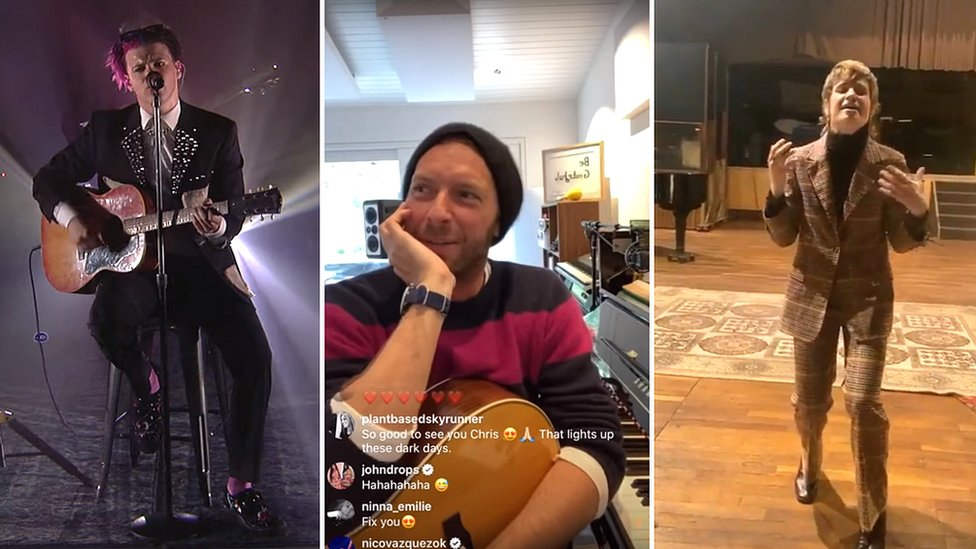Frank Turner's socially distanced trial gig ‘not a success’
- Published
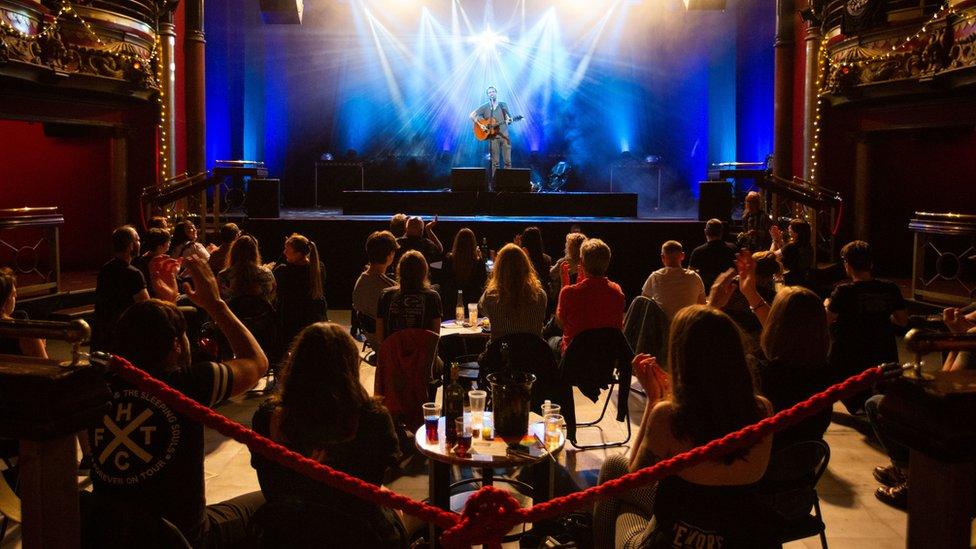
The audience was seated and a one-way system was implemented around the venue.
A gig used to trial safety measures for the return of live music "did not succeed" in providing a blueprint for the industry, according to the manager of the venue that hosted the event.
Folk rocker Frank Turner played to a socially-distanced audience at London's Clapham Grand on Tuesday.
Only 200 people attended, compared to the venue's normal capacity of 1,250.
Venue manager Ally Wolf said the government-backed pilot was not financially viable for venues.
"It can't be the future for live music, it can't be the future for venues," he said, noting that the show did not make enough money to cover the venue's operating costs, even before the performer's fee was taken into account.
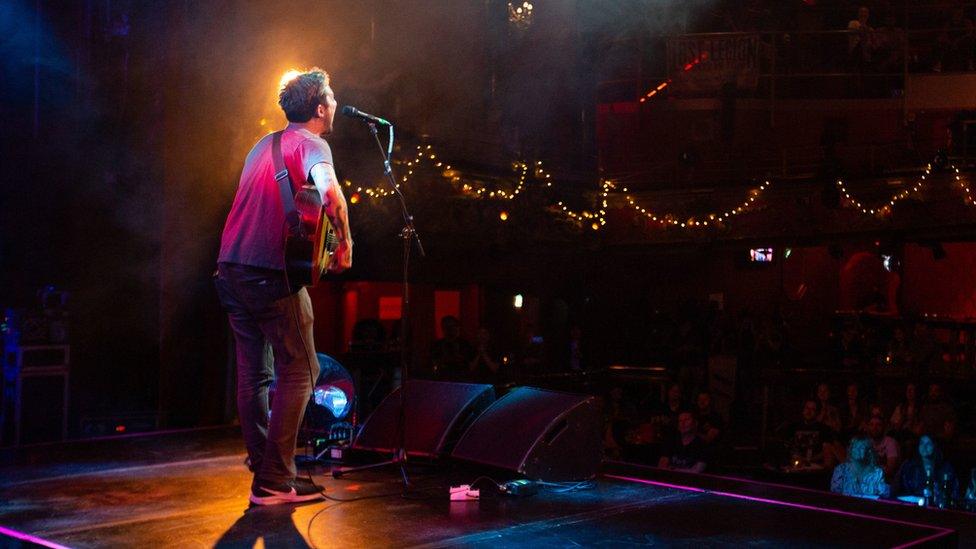
Frank Turner performed at The Clapham Grand to an audience of less than 20% of the venue's capacity
Live music in the UK has been almost completely cancelled since March, due to the lockdown and social-distancing regulations.
Major tours and festivals have all been called off. A tour of drive-in gigs, featuring acts like The Streets, Kaiser Chiefs, Dizzee Rascal and Sigala was also scrapped, with organisers saying the "latest developments over local lockdowns" meant they couldn't proceed "with any confidence".
However, some test shows have now been permitted, to explore how live music could return as lockdown restrictions ease.
Last week, Beverly Knight played a socially distanced gig at the London Palladium venue, ahead of the proposed reopening of theatres on 1 August.
Turner said Tuesday's show was his "first proper gig in over four months" and described it as a "strange, emotional evening".
Wolf said that, while Turner's performance was "great" and it was nice to see an audience back inside the venue, he was not about to get "caught up in the jubilation of finally being able to put on a show".
He said the pilot was "not a financial model that the industry can remotely rely upon to get to be sustainable" and would be particularly damaging for smaller venues.
A spokeswoman for the government's Department for Digital, Culture, Media and Sport (DCMS) told the BBC: "Pilots help us understand how the performing arts guidance can be applied in a real world setting and will ensure groups of people are managed safely when attending venues for performances."
"We'll continue working closely with the industry on ways to reopen and are providing support for venues through the £1.57 billion rescue package," she added.
What was The Clapham Grand pilot experience like?
Seating and tables were brought into The Clapham Grand - a venue were people usually stand to watch shows - to allow for social distancing.
Gig-goers were asked to arrive at staggered intervals and had their temperature checked as they entered the building.
They were then able to order drinks to their tables.
One-way systems were put in place around the venue
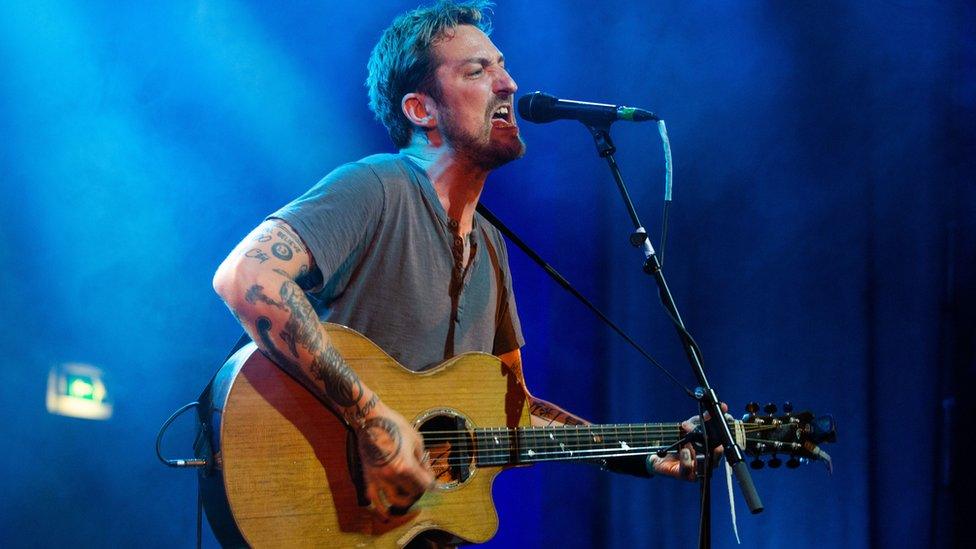
The star called the experience "strange" and "emotional".
Turner had previously performed a live-streamed Facebook fundraising gig "to raise cash for my touring family, who are all tough financial straits" during the lockdown.
Speaking before the show on Tuesday, he stressed how strange it would be to play a tour of venues that were less than one-fifth full.
"A huge part of performance is the energy exchange with the crowd and as a performer you feed off that energy that is coming back at you," said the singer.
After the event, the singer-songwriter said, external he'd agreed to play for free, in order to "demonstrate willingness to try", on behalf of the decimated industry. He also wanted "to show that both performers and audience could successfully abide by the restrictions posited by the powers-that-be", as well as underlining "that this specific set-up doesn't work".
"This is not the start of a series of shows like this - that'd bankrupt everyone involved," he wrote. "But it was, as I say, a gesture of cooperation, an attempt to feel out the situation with an eye to taking steps in a better direction.
"But most of all it was an [expletive] GIG. I have missed that, for sure. It turns out, live music really, really matters."
'Legendary gig'
Among the 200-strong crowd was "massive fan of live music", Angela Johnson, who praised the venue for doing their utmost to keep her and her friend safe, on a spacious table for four.
"As always, Frank and Jay [McAllister, from support act Beans on Toast] turned out brilliant performances charged with so much emotion and and it just filled my heart and still on a high today," she told the BBC.
Allow X content?
This article contains content provided by X. We ask for your permission before anything is loaded, as they may be using cookies and other technologies. You may want to read X’s cookie policy, external and privacy policy, external before accepting. To view this content choose ‘accept and continue’.

"I feel very grateful to have attended what am sure will be a legendary gig and hope that the government will loosen the restrictions and support independent venues financially so that more people can get back to enjoying live music again."
Earlier this month, following pleas for help from big-name stars including Dua Lipa, Liam Gallagher and Sir Paul McCartney, a £1.57 billion support package for the arts was announced by culture secretary Oliver Dowden.
However, Dowden admitted it would not be enough to save every job.
Two popular Manchester music venues were recently saved from closure after a deal was agreed with help from gig promoters and Charlatans singer Tim Burgess, yet many more concert halls across the UK remain under threat.

Follow us on Facebook, external, or on Twitter @BBCNewsEnts, external. If you have a story suggestion email entertainment.news@bbc.co.uk, external.
- Published25 July 2020
- Published21 July 2020
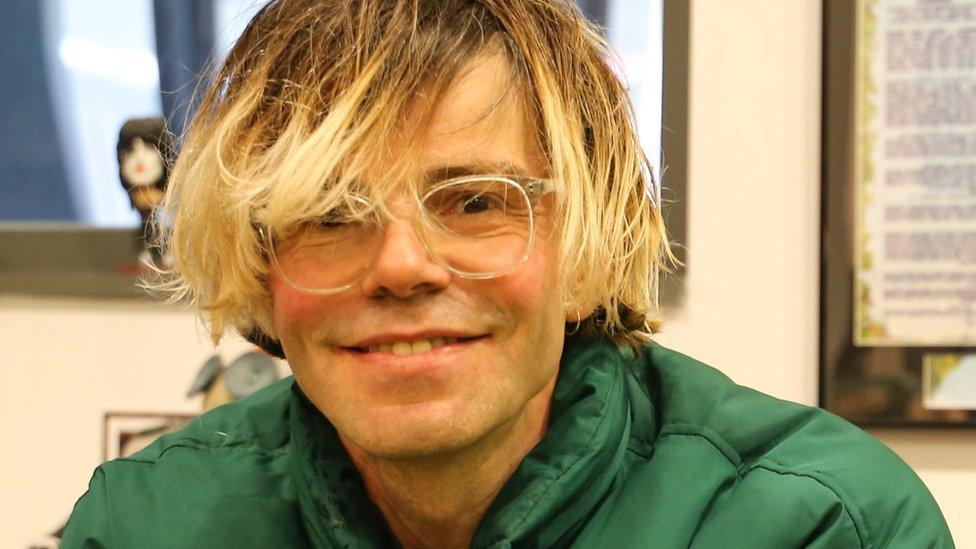
- Published7 July 2020
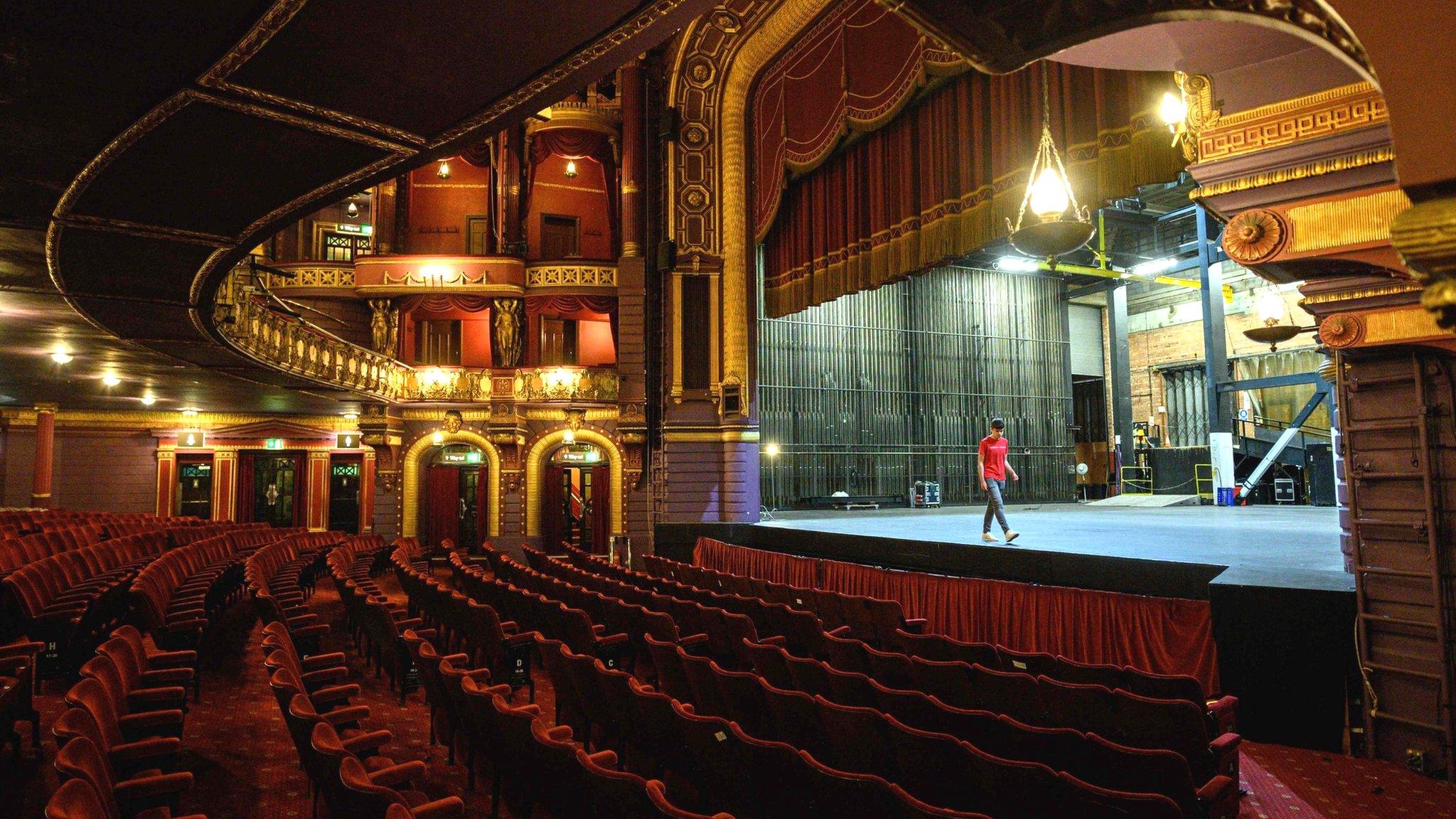
- Published7 July 2020
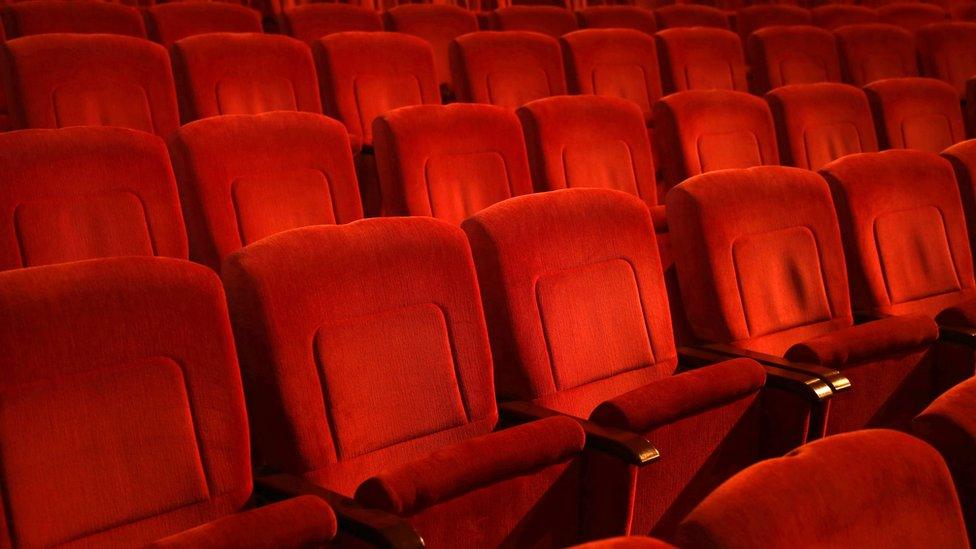
- Published2 July 2020
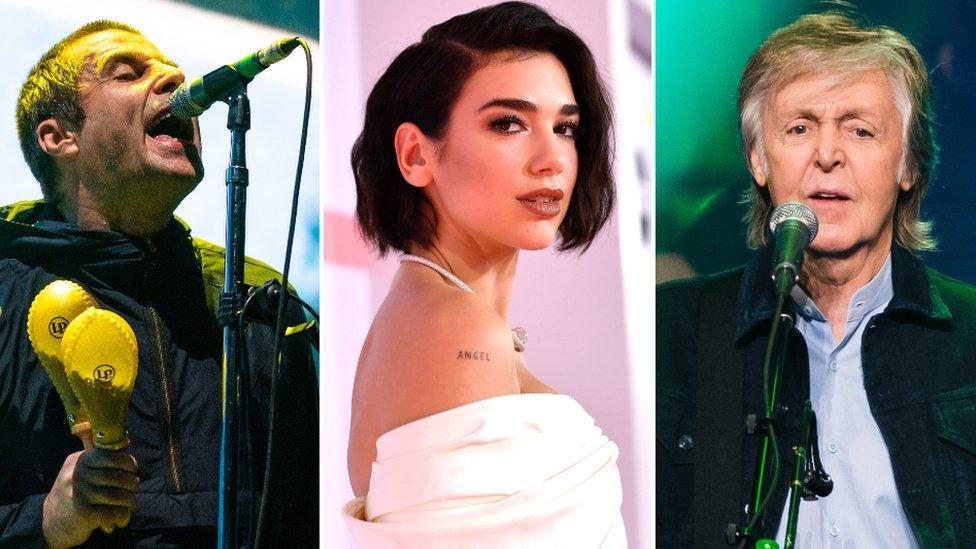
- Published17 March 2020
